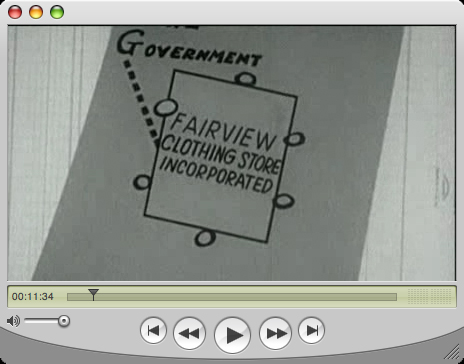27 October 2008
16 October 2007
About Oil
 Since the war in Iraq began, oh so many years ago, I have often heard it asserted that this was, ultimately, a war about oil. I assumed that meant that this was an imperialist grab for Iraq’s oil resources, which, considering how things have turned out thus far, was a remarkably stupid move.
Since the war in Iraq began, oh so many years ago, I have often heard it asserted that this was, ultimately, a war about oil. I assumed that meant that this was an imperialist grab for Iraq’s oil resources, which, considering how things have turned out thus far, was a remarkably stupid move.The other day I was talking to a friend, a technical consultant, in the oil business, and I asked him, about as incoherently as possible, what he thought of peak oil. He told me that throughout his career he had been spec'ing and subsequently shelving hundreds of small projects that were just too expensive to do—they all required $80 a barrel oil in order to be profitable. Now that prices have reached $80 a barrel, all those little projects are coming off the shelf. So yes, he did believe in peak oil, and watching all those expensive projects finally pop into existence was proof enough for him. He believes we will always have a petrochemical industry, but that soon we’ll be hitting ourselves over he head for doing stupid things like turning natural gas into fertilizer. I thought that was a good point since natural gas becomes irrecoverable after being turned into corn and algae.
Later on, the next day or so, I was listening to some of the dire predictions about the consequences of a war with Iran, including $100 a barrel oil. That lead me to the following, rather sinister conclusion: what if the war in Iraq, rather than being a bungled attempt to appropriate Iraqi oil, is a actually a brilliant scheme to keep some Middle-Eastern oil off the market for a while, raise the price of oil over all, thereby generating revenue to develop projects that would previously have been unprofitable. I’m sure this has occurred to someone somewhere already, and Mark L. could probably tell me exactly why I’m wrong, but the thought seemed novel enough that I thought it worth publishing to my glorious audience of three and a half people.
24 October 2007
True to form, ML knows exactly why I'm wrong. Here's what he has to say:
Dane,
I am glad to see that your blog is back up and running. I also appreciate the "shout out".
I don't know why we went to war with Iraq, but I wish the Bush administration had used oil as a justification. I think Bush had a strong desire to invade Iraq, so he looked for intelligence that would enable him to realize his dream. I guess he sort of data mined intelligence to support a war. Data mining in research generally produces flawed results and Bush showed that data mining in foreign policy produces equally erroneous results. I know I voted for George Bush and before we invaded Iraq I told everyone, probably you as well, we should just invade Iraq now because Bush is going to do it anyways. I think I was right.
There is a great justification for the invasion had the war been about oil (Al Greenspan revealed the justification in his new book). Before the invasion, Saddam was trying to control of the Strait of Hormuz and as a consequence of that, a huge portion of the world oil market. About 20% of the world's oil supply is shipped through the straight and had Saddam stopped shipments, the price would have most definitely sky rocketed. People around the world would suffer extreme economic and physical hardships. Can you imagine the world-wide hardships created by another depression in the United States? I know the atrocities of the war in Iraq are absolutely deplorable, but the alternative is far worse.
On as side note, I really believe the diversification and interconnection of the US and world economies make the US economy some what depression proof to anything but a large and sustained spike in energy prices, specifically crude oil.
I disagree with any assertion that the Iraq war is about stealing natural resources. Most undeveloped countries have strict production sharing agreements with large oil corporations that are very favorable to the undeveloped countries. Oil companies almost act as consultants and get a percent of the revenues from the production. Without the oil companies, the undeveloped nations would never be able to realize the value out of their reserve base that is technically feasible because they lack the expertise. Venezuela is a great example of why undeveloped nations need large oil companies. Production in Venezuela has dropped off significantly over the past several years as Chavez has moved to nationalize all oil and gas assets. Venezuela might be getting 100% of a 100 Million barrels of oil produced a year, but that number will decline and it is much less than the 50% of 500 million barrels of oil they could receive (I made those numbers up. I know production has fallen off to the point where the example applies, but I am not aware of the actual numbers). Any oil contract that a large oil company receives in Iraq will benefit the Iraqis much more then if they tried to develop their own fields. They will never have the expertise of an exxon mobile. It is a good socialist rallying cry, but is highly illogical from an economic stand point.
I also disagree with your notion that the US invaded iraq to remove its oil from the market and artificially inflate prices. You obviously understand the economics of oil. It is a world-wide traded commodity that is priced almost exclusively based on supply and demand. Macro issues in any nation around the world have little bearing on the actual price of oil (ie, inflation in the US does not affect the price of oil like it would the price of a car. Inflation would only affect the price of oil if it affected demand or supply). When politicians speak of charging oil and gas companies a windfall tax because americans feel that oil companies are gouging consumers, I usually get sick to my stomach thinking about how imbecilic the leaders of our nation are. Most of Iraq's oil production was offline at the time of the full scale invasion of Iraq. Iraqi oil entered the market through the UN oil for food program and black market activities, but Iraq did not have the technical expertise required to realize a significant level of production. If anything, the Bush administration believed that oil production in Iraq would increase shortly after the invasion, which would decrease the price of oil. Large oil companies would be able to enter the country, develop their oil fields, and bring production back online. If you recall, many of the budget projects for the Iraq war assumed that the government would be able to fund itself shortly after the war because of increased oil production. Obviously the instability in the country has prevented any effort to increase production.
I do not think the US is motivated by oil to invade Iran. Iran is a destabilizing force in the dead sea region and has caused the death of many innocent iraqis and americans. Iran also has the stated objective of wiping out one of the US' most important allies. Maybe I am drinking bush's Kool-Aide, but I believe any attack on Iran will be based on saving innocent lives.
On a side note, if you are interested in the concept of peak oil, I suggest you check out a book by Matthew Simmons called "Twilight in the Desert".
Simmons is LDS (his family owns Zions Nation Bank) and has an investment bank in Houston named after him.
I enjoyed your post and hope you keep writing. Sorry if my email was a little windy, I didn't have enough time to chop it down.
Regards,
Mark
And I had this to say:
Mark-
I knew you'd set me straight, though I hope I made it clear that the notion that the war is about stealing resources is not my idea, just a distillation of what I think people mean when they say, "yeah, it's all about oil, man." I think Bush took us to Iraq because he imagined it was his destiny, the data mining and phantom WMDs were just to justify what he would do no matter what--like you said.
Do you really think the Strait of Hormuz was actually in that much danger? I can't imagine Iran, the U.A.E, or Oman would have let it happen. And if Saddam had made a military move on the strait, well, we would have had a real reason to attack, an actual objective, like the liberation of Kuwait. The administration's justifications for the war seem to change monthly, and I am left with the suspicion that Bush's willingness to jump in there was an easy cover for something else. Personally I couldn't have been happier if the NeoCons had been right, and Iraq was booming right now. We wouldn't be breathing down Iran's neck, they might not have elected that idiot Ahmadinejad (we had a lot of support there after 9/11, all of which we've squandered in Iraq), we might have had the resources to finish off Al Qaeda properly, and who knows what else. But I suspect that someone was going to be pleased no matter how things worked out, and that even the mess we are in now is working to someone's advantage.
Of course I realize the price of oil has to do with increased demand (China, India, everybody else), but markets also responds to perceived threats to supply, like a destabilized middle-east. Naturally I have no proof, but I can imagine someone devious enough to manipulate the perception of risk. The fact that Iraq was largely off-line only convinces me more, since its continued absence doesn't effect actual supply, while violence in the region reinforces the notion of risk to continued production. And facts are facts, even if none of the major decision makers going into the war were hoping that oil prices would quadruple for the sake of further exploration, the current prices are having that effect, allowing companies to access smaller and deeper deposits.
So now that we are seeing a sustained spike in oil prices (the predicted outcome of Saddam grabbing the Strait of Hormuz, and, by the way, wouldn't a pissed off Iran be more of a threat to that particular bit of geography?), what happens? I see that predictions a year from now have the price at over $100 bbl. Does that mean we get a depression, or will it take more than that? Personally, I welcome high oil prices. It means more r&d will go into alternative, hopefully sustainable, energy sources. And if we stumble a little as a result, well, sucks for us, but I don't think the outcome will be as devastating as we imagine for the rest of the world (J and I will just move to France or something like that). Means of production are much more equitably distributed than they used to be, so I don't think things slowing down a bit would automatically plunge us into a dark age. Some countries might actually benefit from a more hands-off policy on our part, allowing them to trade more with each other, creating a more robust network in the long term.
I'll look for that book when I'm back in the States and earning dollars again (they're better than Baht, even if they are worth less than loonies now). And thanks for making me rethink my groundless assertion. Do you mind if I add the text of your email to that post? I enjoyed it.
How's your art collection coming?
Posted by
Dane
at
11:10 PM
3
comments
![]()
23 February 2007
The Corporation
Sorry for the momentary break in our 100% puppy program, but the other night we watched The Corporation, and I felt it might be worth recommending to interested individuals. I'm sure the title makes it fairly clear that the message was rather anti-corporate. There was a fair amount of spin, naturally. For instance, in the coverage of the Bolivian Water Wars over the privatization of Bolivia's water utility, the assertion that it was illegal to collect rain water was presented without any qualification. Granted, this information was part of an interview with one of the protest leaders, and should be taken in context. Unfortunately it served to obscure a truth that was no less outrageous. While it was in all likelihood not illegal to collect rainwater, Bechtel did have the right to appropriate smaller, community water projects that had been paid for with community or private funds, to install water meters on those projects, and charge residents for the installation of the meters. I guess when you expect to extract a 15-17% profit from a 3rd world water utility, you'll do whatever it takes.
 One of the key benefits of incorporation is the fact that the corporation is treated as a legal person. In the film this legal fiction is employed as a literary conceit, building the case that if a corporation is a person, that person is psychotic. It occurred to me that this concept of legal personhood, and the way in which that personhood is manifest, is rather like the occult concept of an egregore, or "thought form" (as it turns out, whoever wrote the Wikipedia article had the same idea). This reminded me of a podcast I heard about a guy who, operating under the assumption that an egregore is an independent entity and can therefore be acted upon in the same way as an individual, cast a love spell on Fox News (so if Fox News isn't giving you the same "fair and balanced" conservative propaganda that you've come to expect, blame it on Jason Louv). There seems to be something to this, and the term egregore may just be a wacky name for a very real phenomenon. Several of the interviews in The Corporation are conducted with CEOs and board members of large corporations that have committed immoral acts under their watch. The one commonality linking all of the interviewees is their sincerity, their belief that they are moral men, concerned for human rights, the environment, and justice. Think for a moment of Bill Gates (not featured in the film). Based on his charity work I think it would be fair to assume that he is a moral and concerned individual, dedicated to improving human life on a very fundamental level. Yet the company he founded is a petulant monster. Are we to assume then that Bill Gates is not in fact a moral individual, but is himself a petulant monster in disguise? Not necessarily. The incorporation of Microsoft (and any other corporation for that mater) is the legal and metaphorical "embodiment" of an entity whose primary purpose is to make money. That is not its sole purpose, but those secondary purposes serve to differentiate it from its competitors (i.e. it is a software company, not a hardware company; it engages in legal commerce, rather than robbing banks or trafficking drugs), and are therefore ancillary. The act of incorporation is the delegation of responsibility and liability to a collective entity with little or no motivation to act responsibly or morally. The corporation desires to make money, and it will do so through any means possible, as long those means do not compromise its ability to continue to make money, provided it doesn't get caught. Turning such a behemoth around requires a concerted act of will (contemporary magic is often thought of in those terms), essentially, the addition of new input into the component elements of the egrigore, or the inoculation of radical new values into a corporate culture.
One of the key benefits of incorporation is the fact that the corporation is treated as a legal person. In the film this legal fiction is employed as a literary conceit, building the case that if a corporation is a person, that person is psychotic. It occurred to me that this concept of legal personhood, and the way in which that personhood is manifest, is rather like the occult concept of an egregore, or "thought form" (as it turns out, whoever wrote the Wikipedia article had the same idea). This reminded me of a podcast I heard about a guy who, operating under the assumption that an egregore is an independent entity and can therefore be acted upon in the same way as an individual, cast a love spell on Fox News (so if Fox News isn't giving you the same "fair and balanced" conservative propaganda that you've come to expect, blame it on Jason Louv). There seems to be something to this, and the term egregore may just be a wacky name for a very real phenomenon. Several of the interviews in The Corporation are conducted with CEOs and board members of large corporations that have committed immoral acts under their watch. The one commonality linking all of the interviewees is their sincerity, their belief that they are moral men, concerned for human rights, the environment, and justice. Think for a moment of Bill Gates (not featured in the film). Based on his charity work I think it would be fair to assume that he is a moral and concerned individual, dedicated to improving human life on a very fundamental level. Yet the company he founded is a petulant monster. Are we to assume then that Bill Gates is not in fact a moral individual, but is himself a petulant monster in disguise? Not necessarily. The incorporation of Microsoft (and any other corporation for that mater) is the legal and metaphorical "embodiment" of an entity whose primary purpose is to make money. That is not its sole purpose, but those secondary purposes serve to differentiate it from its competitors (i.e. it is a software company, not a hardware company; it engages in legal commerce, rather than robbing banks or trafficking drugs), and are therefore ancillary. The act of incorporation is the delegation of responsibility and liability to a collective entity with little or no motivation to act responsibly or morally. The corporation desires to make money, and it will do so through any means possible, as long those means do not compromise its ability to continue to make money, provided it doesn't get caught. Turning such a behemoth around requires a concerted act of will (contemporary magic is often thought of in those terms), essentially, the addition of new input into the component elements of the egrigore, or the inoculation of radical new values into a corporate culture.JR let us borrow the movie, and has had some thoughts of his own regarding corporations. He thinks they should all be reincorporated as not-for-profits, though not necessarily with 501(c) status. I think that shareholder status should be extended to more stakeholders (starting with employees), and that aspects of direct democracy be put into practice at critical points in the day-to-day operations of a company. I can only imagine what it would have been like back at old VMSC if the entire company voted on whether or not to take on a particularly obnoxious client. It would have put an end to the constant blame game, since all of us would have been responsible for taking the son of a bachelor on.

Posted by
Dane
at
1:16 PM
2
comments
![]()
28 January 2007
Mormon Mentality and Global Warming
I’m even later in the discussion, but I read the whole dern thing, so I’ll at least say my bit:
In the Book of Mormon, a text in which I assume we all have some degree faith, or at least appreciation, the issue of human impact on the environment (of which global warming is an example, but not the only one) is treated, somewhat obliquely, through scriptures concerning the land of Desolation. In Helaman 3:5-7 and Alma 22:31 we learn that the land to the north had been severely deforested, to such an extent in fact that the animals inhabiting the area had all moved south in search of food. This “desolation” we will remember was the result of, and a significant factor in the collapse of the Jaredite civilization. The Jaredites were relatively isolated from the rest of the world. Even if we are so naive as to imagine that they occupied the whole of the North American continent (not very likely) their collapse had little if any effect on the world as a whole, other than open up land for occupation by the Nephites. They had no political, no economic ties with any countries on the other side of the globe. Their energy resources did not depend on the political stability of nations thousands of miles away. They had only the land the were given, the wisdom of their leaders, and the righteousness of their people.
We are told that the Book of Mormon is a message for our day. In it we read of the collapses of two civilizations. In both cases their prophets pleaded with them until the very end, but the people were too “wicked” to listen. As we learn from the example of the Jaredites, one symptom of a wicked people is over exploitation of resources and degradation of the local environment.
I write these words from Thailand (my wife quietly suffering in bed with a rash brought on by air pollution), a country no less cellphone, iPod and SUV obsessed than the USA, despite the current military junta’s desire to “simplify” and backtrack. The fact that they are poorer does not limit their aspirations, but instead makes them that much grander relatively speaking. We are quickly becoming one civilization (actually, I think we have been for some time), and the actions of one country can have repercussions around the world (the 1997 financial crisis originated right here). At this point in our civilization’s history there is no such thing as a strictly local environment. It’s all local. And just because your own back yard in the Whatever Valley, UT happens to be green and peaceful doesn’t mean that someone else’s desert isn’t blowing sand your way. Did you know that China’s soil (and our own) is being blown onto the Rockies as we speak, darkening the snow and making it melt faster? Do you people know where your water comes from?
I’m sure annegb has moved her defeatism and ignorance to greener digital pastures, but let me just say that I am ashamed to belong to the same church as her, and those that agreed with her in this discussion. If we are told to study the scriptures (BoM in particular) and follow the examples of the prophets, prophets who fought for their people, for their civilization, until the end, how in the world can anyone justify such a stance? I for one will follow the admonitions of our prophets and seek after “anything that is virtuous, lovely, or of good report or praiseworthy,” regardless of whether it comes from that “putz” Al Gore. If there are virtues in the environmental movement (virtues like, frugality, conservation, self-sufficiency), and means to more fully magnify those virtues in myself and in my community, then we should embrace them without waiting for church leadership to tell us specifically to “go Green.”
There is a baffling tendency among some members of the LDS church to treat the Republican party line as though it were gospel doctrine and political leaders as though they were church leaders. We are also, as a church, being left behind on environmental issues by evangelicals who are beginning to understand the role of stewardship in a more robust and productive way than we seem to. I would encourage any good Mormon members of the GOP to listen to this talk by Roger Kennedy to broaden their understanding of the US, the history of the land she now occupies, and the diversity of opinions that can be held by a Republican. Also this episode of Speaking of Faith discusses the environmental movement and growing evangelical engagement in a spiritual context.
I’m sorry annegb, but if you think we agree on anything, I’m afraid you misunderstood me somewhere. I don’t think we should live merely decent lives, but rather exemplary ones, meaning radical change. If the rest of the world were to live up to our standards the results would be appalling. In the US we consume 20,030,000 barrels of oil per day. That’s more than China (6,391,000 bbl/day), Japan (5,578,000 bbl/day),Russia (2,800,000 bbl/day), Germany (2,677,000 bbl/day), and India (2,320,000 bbl/day) combined. Those countries are the top five oil consumers after the US, and have a combined population of 2,790,097,000. Nearly half the world’s population. Actually, about 300,000,000 shy of half, which happens to be the US population. As proud citizens of the USA we use, individually, .0667 barrels of oil per day. That doesn’t sound like much, but if our other buddies in the top six were to consume just as much their combined usage alone would top 186,285,476 barrels a day, or 67,994,198,877 bbl/year. And if the rest of the world were to live up to our standard, well, I don’t even want to do the math. The numbers for energy consumption, CO2 production, water consumption, waste accumulation, etc. are just as grim.
Much of the clean living, natural beauty, health, and happiness we enjoy in the US are the result of shipping our problems elsewhere. I happened to serve my mission in one of those places (the Dominican Republic) and I live in one now. On the flip side much of the clean living, natural beauty, health, and leisure we enjoy in the US are the results of work done by wacko environmentalists, labor organizers, and other lefty nutcases endorsing radical change.
That said, I wonder why the second-coming isn’t here yet? Maybe God is giving us a chance to repent and clean up Lake Baikal on our own. After all, the atonement is contingent upon our repentance.
Sorry if I got the wrong impression. Look, I don’t expect you to go out and become an environmental activist, nor do I think most members of the church should. There is plenty of good that can be done in the world, and I’m sure you’re anxiously engaged in your own area of concern. What I am asking is that those of us who do chose to focus on those particular issues not be antagonized by fellow members of the church. Especially when there is scriptural precedent for concern and action over environmental issues, and plenty of overlap in values between environmentalism (values I listed earlier, like frugality and self-sufficiency) and the church. I don’t think changing out your incandescent light bulbs for compact fluorescents is extremist. I don’t think recycling is extremist. I don’t think conserving water, electricity, or gasoline is extremist. Nor do I think they are based on feelings of fear or insecurity when they are in accordance with some of our core values as members of the church.
Each of us has been endowed with our own free agency (as you well know), and the world we create emerges from each of those individual actions. I don’t want to limit the good you do in the world, please don’t try to limit the good I do by saying there’s no point.
Thank you for your last comment, I feel I have a better idea where you’re coming from.
One more point, of general interest, on the rest of the world living up to our standards. As cleaner, lighter-weight substitutes for current technologies are deployed in developing nations, I actually think there is at least a (teensy-weensy) chance that they might do better than us. In the US our switching cost is greater since we are tied to our current infrastructure. It’s possible to envision a near future where currently struggling nations far outstrip us in quality of life while we struggle to catch up. Oh, the irony.
the world is going to heat drastically, it’s the sun’s fault entirely, and there is nothing we can do but embrace the coming apocalypse?
I think scientists who actually work in field of climate change are concerned because in addition to the poorly understood mechanism of global warming caused by the sun (an estimated 0.6˚ in the past 100 years), human beings are generating enormous amounts of gasses (not just CO2) which have a well documented correspondence to higher temperatures here on earth (acounting for the other 0.4˚). In other words, we are making a bad situation worse, since many of these processes are feedback loops–increased CO2 leads to higher temperatures which lead to increased CO2 or CH4 (as previously sequestered sources of methane and CO2 are exposed by melting ice). By focusing on the anthropogenic side of the equation (greenhouse gas) I’d like to think we are merely being pragmatic. But then I’m just an art fag, not a rocket scientist (or does that mean you’re just an engineer and care little for hard science). Are you one of those who think we should launch giant sunshades into outer space?
In Dallas, where I was raised, I used to mark the coming of spring by the blooming of the redbuds. It always happened the week of my birthday without fail. For the past five years they have been blooming earlier and earlier. In Austin (which is suposed to be only two weeks ahead of Dallas) I have seen them bloom in December and January. Also several plant species are are creeping north, ball moss (a bromeliad, related to pineapples), is well established in Dallas now. My parents have coma sprouting in their back yard (it was absent my entire childhood). And Jerusalem thorn (native to south Texas, like coma) is becoming a veritable weed in Austin.
This year’s freaky weather in the US (and probably here in Thailand, where we’ve had record cold) is due to El Niño. For signs of long term climate change I’d pay attention to the plants.
Posted by
Dane
at
8:15 PM
0
comments
![]()
Labels: environmentalism, living, Mormonism, politics, Thailand
26 January 2007
Too Coup for School
Both Time and Newsweek have interesting articles about last year's coup, the military junta, and their misguided interpretation of King Bhumibol Adulyadej's calls for simplicity and self-sufficiency. It's kinda depressing.
Ummm. . . pretty pictures?


Posted by
Dane
at
1:42 AM
0
comments
![]()
20 January 2007
Manufacturing Consent

Q-Referring back to your earlier comment about escaping from, or doing away with capitalism. I was wondering what scheme, what workable scheme you would put in its place?
NC-Me?
Q-Or (unintelligible, laughter).
NC-Well, you know I. . . (talking over one another)
Q-What would you suggest to others who might be in a position to set it up and get it going?
NC-Well, I mean, I think that what used to be called, centuries ago, "wage slavery" is intolerable. I mean I don't think people ought to be forced to rent themselves in-order to survive. I think that the economic institutions ought to be run democratically by their participants, by the communities in which they exist, and so on; and, uh, I think, through various kinds of free association.
I first saw Manufacturing Consent: Noam Chomsky and the Media about six years ago. I'd recently returned to the US from Spain, was working as a private gardener, fund raising for an environmental lobby, and working on my BFA. When it came to the part transcribed above, I started crying (I might have been a little stressed out for some reason...). Jami and I watched it again tonight (J had never seen it), and I was struck by how much (and how little) has changed since 1992 when the film was released. Several times in the film Chomsky expresses a desire for greater public access to media, essential asking for blogs and podcasts. I noticed, just a few minutes ago, that even he has a blog now. I'll be curious to see what he thinks of the new medium.
The picture above is from a part in the film where a photographer is getting him to pose against a fence. As he's trying to arrange himself he notices a bit of something (food I hope) on his finger, and licks it off. Funny.
An unrelated item, has any one noticed our nifty Rory (our dearly departed Manx) favicon?
Posted by
Dane
at
10:06 AM
1 comments
![]()
Labels: biographical, movies, politics
05 January 2007
Coup de Main, or Maybe Not

As I'm sure most of you know New Year's Eve in Bangkok was interrupted by nine small bombs placed throughout the city, killing 3 and injuring 34. The separatists in the south have denied responsibility, so have supporters of Thaksin. The military claims it was Thaksin loyalists, but some are saying it may have been another faction from within the military (essentially an attempted second coup d'etat), or (and maybe more likely) it may have been the military itself, hoping to scapegoat the loyalists and draw attention away from the fact that its junta seems to have installed itself more permanently than it said it would. Who knows. In a country where the former prime minister decides to have a car bomb placed in his own car in order to curry sympathy, anything is possible.
In further Thailand news, we've had an earthquake (5.1) here in Chiang Mai. We didn't wake up for it as it was poorly announced beforehand. There has also been a state of emergency declared here in the northern provinces due to the extreme cold. No, I'm not kidding. In some of the mountain villages the temperature has been hovering between 8 and 13˚C, and actually dropped below freezing in some places. I realize this isn't a big deal in the States, but if you and your house are tropically adapted (read drafty), and you own no warm blankets, it's kind of a big deal. There have been two cold related deaths in Chiang Mai, a construction worker, too drunk to cover up one night, died of exposure, and a security guard suffered a fatal asthma attack.
In D&J related news, we are going to Lao, either Sunday or Monday, for visa related nonsense. If things don't get resloved on that front soon our options are to live in Burma where Jami will paint her face with turmeric powder and sell apples and smuggle heroin, and I will sell Viagra and cigarettes from a tray strapped to my hip, or we move back to the States and live in a potting shed. Those of you so inclined, please pray that things work out in our best interest (which I hope means a near future absent of turmeric, apples, heroin, Viagra, cigarettes, and potting sheds--well, maybe not apples and turmeric).
And one final begging related item, if anyone can get their hands on a copy of Michael Fried's essay "Art and Objecthood" (Artforum, June 1967 I think) I would be much obliged. My copy is burried somewhere in a garge in Texas. I can't say which garage.
Posted by
Dane
at
9:51 PM
0
comments
![]()
07 November 2006
Vote Here/Aquí
 Picture of me giving a presentation of my work
Picture of me giving a presentation of my workthree days after the 2004 election.
As I write this it is just after 11 AM UCT/GMT+7, 8 November, so 11 PM EST, 7 November. Polls should be closed or closing across the US, and those of you who exercised your republican virtue today should be able to sit back with a cup of hot chocolate, or slip into bed feeling proud of yourselves. At least until the election results begin to roll in. For the past two presidential elections I have succesfully managed to disenfranchise myself, or been disenfranchised by a third party. The last one I voted in was in 1996, while I was in the MTC in Provo. In 2000 I was in Spain, and didn't bother trying to obtain an absentee ballot. I wasn't sure who I'd have voted for anyhow. I didn't like the idea of a legacy presidency --Clinton passing the stick to Gore, like Regan to Bush I. Nor did I like the idea of a dynasty--Bush I, Bush II, Bush III (just waiting for Jed). That year I probably would have voted for Nader, safe for a Texan with misgivings since Dubya carried the state anyhow, and our electoral college system cares naught for the individual vote.
In 2004 J and I were in Italy, and despite the fact that we had requested our absentee ballots as early as was legal, they still arrived, as though to mock us, the day after the elections. We were living, at the time, with people from all over Texas as well as some from California. Those registered in Houston all received their ballots, the Aggies likewise. It seems like a little too much of a coincidence, however, that those of us registered in Travis County, the county most effected by republican gerrymandering (please explain to me how south Austin and the Rio Grande Valley are a community of common concern), received our ballots the day after. But it's OK really. Our votes probably would have been thrown out with the half million other absentee ballots that were discarded in 2004 (that is as though one in every 240 people were arbitrarily turned away from the polls).
My cynical and misanthropic strategy when it comes to voting is to vote for any and every third party canditate, be they Green, Libertarian, or Communist (I wouldn't vote for a fascist, though, were one to ever appear in any official guise). I then divide my remaining votes between Dems and Reps, with attention paid to whomever happens to be in power and where at the time. The idea being that I dislike both parties enough (though one more than the other at the moment) to try to prevent either from having a majority. I'd rather they work toward compromise, and engage in actual discourse, than be able to run any bill they like straight through. Though, lacking derridian play, I'll take demanian aporia, in the hopes that no harm will be done, if no good either.
I'm proud of those of you that voted, and especially of my SE Texas family for volunteering at the polls. Under a system run mostly by money, voting is one of the most idealistic and romantic things we can do. Hooray for ideals and romance.
Posted by
Dane
at
9:56 PM
0
comments
![]()
Labels: politics
05 October 2006
On the Cheap Bus to Burma

I wanted to save this for later, until I knew a little more, but we just took our first trip to Maesai on the Burmese border. We took the cheap bus there and back, the one that costs 500 Baht round trip for the two of us instead of 1200. So our fellow riders were, of course, of the poorer classes, many belonging to groups not well integrated into Thai society. This is where I wish knew more, but I'll forge ahead anyhow, and fill in the gaps in later posts as I learn more. On our way north, we were stopped on four separate occasions by police who came aboard and checked the identity cards of all the Thai on the bus. It was an odd bit of racial profiling, from which we were exempt, at least on the way up. On the way back my bag was searched, for Burmese heroine I assumed, and they asked for our passports three of the five times they stopped the bus. Every once in a while they would pull a person off the bus and throw their bags out of the luggage compartment. Also on the way back they vigorously frisked the kids in front of and behind us. The same guy that searched my bag was so thorough with the kid behind us that he nearly pulled him off the ground by his groin.
Here in Thailand there are a number of different ethnic groups, all of whom tend to be lumped together under the generic label of "hill tribes." The missionaries, for example, are teaching two men, one who speaks no Thai, and identifies himself as Mongolian (though he has never even been to Mongolia). The other speaks perfect Thai, his family has been here for generations, but he is Thai Yai, a Shan (Tai speaking, Thai being one of many Tai languages) ethnic minority here in northern Thailand and Laos, with the majority living in Shan State in Burma. His situation is particularly interesting. He is regarded by the Thai government as belonging to another nation, and is therefore not Thai. But his is a nation without a country, and his movements within Thailand are restricted to the borders of his former homeland. He cannot get a passport. He cannot cross the border into Burma or Laos. He cannot travel to Bangkok. He cannot apply for Thai citizenship. He cannot even get married. If he does decide to get get baptized someone will have to perform a solely religious ceremony in the chapel, so that he's married enough to appease the church, though he will never be married according to Thai law.
Those are the kinds of people our friendly policeman, pictured above, was throwing off the bus today--ethnic minorities bold enough to try and leave their ghettos. It seems incredibly unjust to me right now. I know there are NGOs here working on that sort of thing, so as I meet more people, and learn more, perhaps I will begin to fill the black hole at the center of this puzzle.
Posted by
Dane
at
10:31 AM
0
comments
![]()
27 September 2006
Please Don't Yawn While Reading Nabokov
On Sunday we took a walk in the evening and discovered, quite by accident, a textile workshop called Studio Naenna. They specialize in hand woven silk and cotton, and make a lot of their own vegetable dyes. We came back first thing Monday morning, and they showed some of the textiles they make, the looms they use, and the plants for dyeing. It reminded us a great deal of Tierra Wools in New Mexico. While we were there the staff told us to keep on walking up the road to a Boy Scout camp. It was unoccupied, to our relief, as it is home to a beautiful waterfall, which cascades down a basalt hilside. I poked around and looked at plants (I made off with an Alpinia purpurata and a tiny little Elettaria) while J soaked her feet.
That same day was the Monday market in our neighborhood. We bought pants for me, a shirt for J (I have a feeling she will write very soon about clothes), and reading glasses. For me. I’d been getting head aches while reading. So I got some nifty 1.00 fold-ups. I look like a regular Asian scholar now.
Oh, and just to remind you that we are still under martial law, I finally got a picture of a tank. The tanks are quite popular. This one was decked out with roses, and I even read that a couple here in Chiang Mai took their wedding pictures in front of a tank with soldiers.
 The roses are hard to see, but there are two
The roses are hard to see, but there are twosticking out of the top of the front panel.
Posted by
Dane
at
3:52 AM
4
comments
![]()
20 September 2006
Coup d'etat
Today is also the day that JR left for Barcelona. J and I were sad to see him go, he was our own personal tour guide, and a nifty fella for brother and brother in-law. But he should be back soon, we hope, we hope. I dropped him off at the Chiang Mai airport, and despite the coup he left with out a hitch. Then I drove around in search of tanks (AS saw some just out of town), stopping at Wat Jedyod (“temple with seven spires”) along the way. No tanks, but Jedyod was nice. It still has a lot of the original plaster on the Bothi Throne (representing the place where the Buddha achieved enlightenment under the Bodhi tree), and white painted sticks, like crutches, leaning against the Bodhi tree (Ficus religiosa, a type of fig).
To catch up on us, J is plugging away on TOEFL certification; we’ve been reading lots of Murakami, just finished Kafka on the Shore; and I’ve been drawing. Monday we got our first Thai massage, and visited Wat Umong, which has nifty caves. We eat almost every day at a place we call the Kitchen. It has no sign, no walls, and a meal is about 50 cents. Our branch at church meets near the center of town, and the missionaries think it’s one of the best in the country. Last week we got settled in, rearranged our room, cleaned the kitchen (unfortunately the drain still backs up, and gets sewer water on part of the floor), and began coveting a kitten (from the Kitchen). I managed to learn how to operate a scooter and drive left handed last week (if only I could learn Thai that fast). JR actually complimented my driving this morning. The Thai driving style is much livelier, much more intuitive than in the states. I like it, though we did see a pretty bad accident involving two motorbikes on Saturday. A farang (foreigner) going way too fast hit a Thai kid who was pulling out in to traffic. The Thai was knocked off his bike while the farang slid about 20 feet.
It’s raining right now. The rainy season is slowly ending, and the weather has been cooler. We are learning our numbers
of Phya Tilokaraja King of Lanna.
Posted by
Dane
at
4:54 AM
3
comments
![]()












